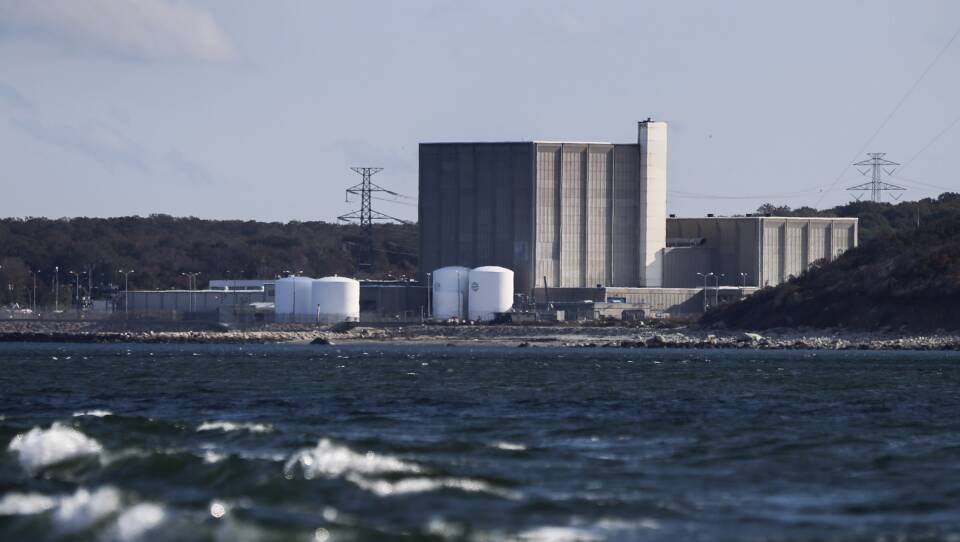The federal agency that oversees nuclear power plants has delayed giving final approval to the sale of the now shuttered Pilgrim Nuclear Power Station in Plymouth. Now, the state and a group of concerned residents have more time to file a stay on transferring Pilgrim's license to the would-be new owner, New Jersey-based Holtec International. That company would be responsible for the decommissioning of the station. The state and residents say they want more detailed information about Holtec's plans for cleaning up Pilgrim's radioactive waste. Sean Mullin is the chair of the Nuclear Decommissioning Citizens Advisory Panel, a state committee appointed to oversee and advise the decommissioning of Pilgrim. He spoke with WGBH Radio’s Jeb Sharp about his concerns. This transcript has been edited for clarity.
Jeb Sharp: The company, as I understand, has submitted its decommissioning plan. The federal Nuclear Regulatory Commission, the NRC, has said that it will continue its oversight function, its inspections, it will make sure the decommissioning is done right. So what specifically is concerning you about this preliminary approval?
Sean Mullin: First is the financial assurances that the decommissioning can be properly done and the land will come back to being usable for all purposes. Second, concerns relating to how they are going to manage this over the future. Then, of course, there are all sorts of environmental issues. How are we going to continue to monitor the air, the water, the soil? And more importantly, who's going to pay for it?
Sharp: This stuff gets complicated. Let's take a step back, because you know this process very well. What is actually involved in decommissioning?
Mullin: One of the things that I think folks should understand is, this is not like coming in and bulldozing over a building. This is a much different set of circumstances. Anything that's been coming in contact with the radiation that's been created over the last 40-plus years needs to be examined, understood what its potential danger is, and then handled independently.
And I always compare it to anyone who's done a rehab on their house. Once you get in the walls, you find a lot of things that you didn't realize. That's one of the fundamental concerns at the state and local level.
Sharp: To push you a little bit, Holtec has submitted a decommissioning plan to the NRC. And you're saying that these details aren't in there, or there aren't enough details, or there are things they've missed?
Mullin: No, there is sufficient detail in there to satisfy the NRC requirements. If they get into the project and they find out, 'Oh my goodness, there's so much more tritium in the soil than we expected, it's going to cost us more,' — Who's going to pay for that? There are no financial assurances, other than verbal assurances by both NRC officials and Holtec. The moment that transaction closes with Entergy, over a billion dollars of ratepayer money goes into their checking account.
Sharp: You're worried they could blow through that money and decommissioning would not be complete?
Mullin: These folks understand the business that they're in. So I don't have any concerns that they can do the work. My concerns about it is: If they don't have any doubt, then sign up and provide the commonwealth and the town the assurances in writing that they can do it. I have been very aggravated with the fact that Holtec has refused consistently — both in writing and verbally at meetings — to ever give any commitments about what they'll do. They won't do it. And I understand that from a business perspective, you want to minimize your risk to the shareholders. I get that, that's okay. I expect them to make a profit. That's okay. If you're telling me you're going to return this site to general purpose use and you won't sign up for that, I have a problem with that.
Sharp: And you are a resident of Plymouth. Help us understand what's at stake here for you.
Mullin: My concern is the long term, and by long term I mean anywhere from 20 to, say, 500 years. Who's going to be around in 85 years to continue to provide public safety for that location? Nuclear energy is not by itself a bad thing. What's bad and what's potentially very dangerous is that we've never taken care of addressing the most critical issue which is, what do we do with the spent fuels? How do we safely store this? Who's going to pay for it?
Entergy, the plant's current owner, and Holtec said in a combined statement to WGBH News that Holtec's transfer license application shows the company “possesses the technical and financial qualifications required to safely decommission Pilgrim.”





